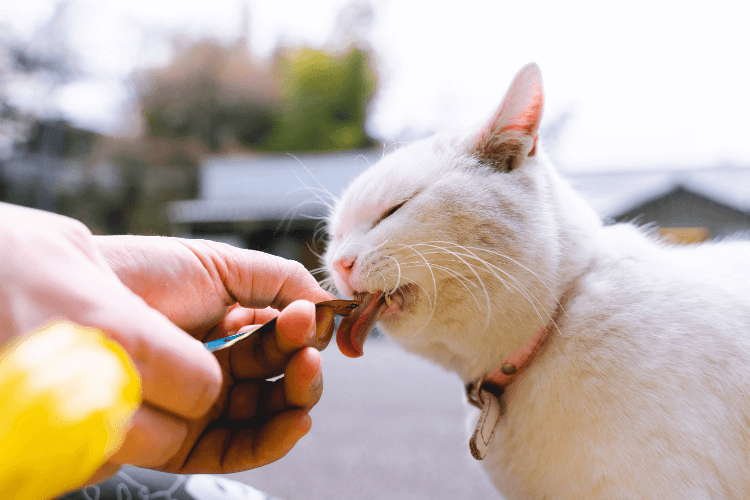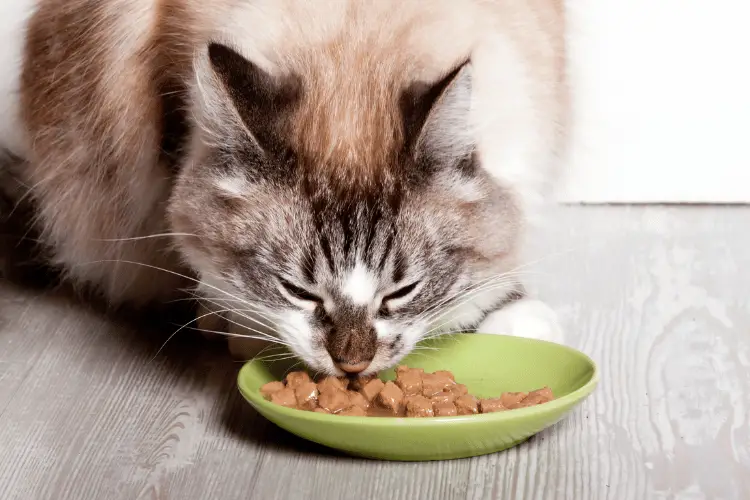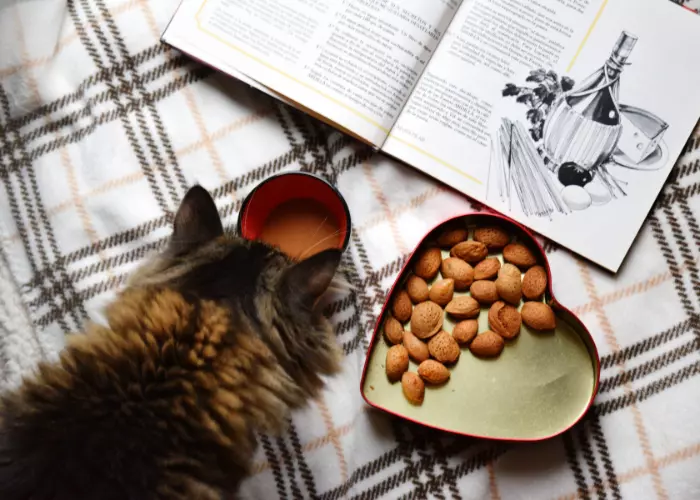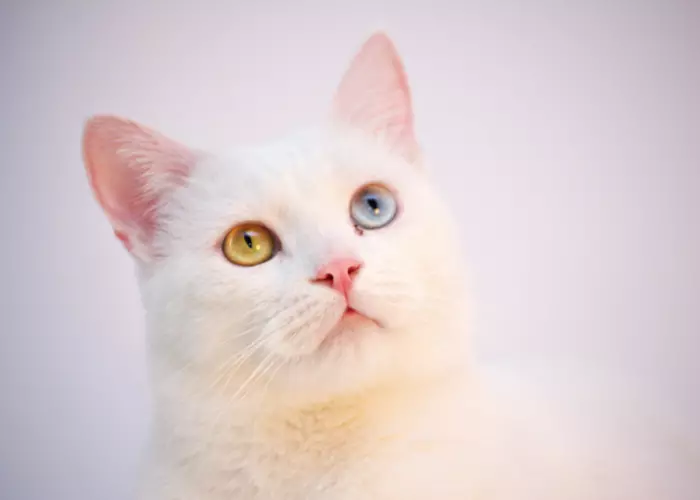No, cats cannot eat lemon pepper tuna. Feeding your cat lemon pepper tuna will cause your pet harm, so you should avoid feeding them this. Each ingredient is dangerous to the health of your cat.
Moreover, some cat lovers are still confused about giving lemon pepper tuna to their pet cats. They don’t know about the advantages and disadvantages of lemon pepper tuna for cats.
In this article, I will discuss lemon pepper tuna ingredients, how safe feeding lemon pepper tuna is to cats, and so on.
What Is In The Lemon Pepper Tuna?
Lemon pepper tuna is a dish made with these three main ingredients. The dish is usually made with lemon, black pepper, and tuna fish.

Lemon is a citrus fruit, and this makes it toxic to cats. Pepper has piperine that can irritate your cat’s senses. And tuna is dangerous to a cat’s health if taken regularly.
Here are the ingredients in the dish.
| Lemon | Lemon is a citrus fruit, and this is toxic to cats. Felines are also sensitive to lemon zest. |
| Pepper | Pepper is irritating to cats and can affect their digestive system. It can cause vomiting and diarrhea. |
| Tuna | Tuna contains mercury and is harmful to cats when consumed in excess. |
Lemon
Like every other citrus fruit, lemon is toxic for cats. Lemons contain psoralens and essential oils, and this causes cats to experience vomiting, depression, diarrhea, and dermatitis in severe cases.
Also, cats don’t enjoy the aroma of citrus fruits, whether it is lemon or any other citrus.
When there’s lemon zest in a dish, your feline will most likely stay away from it. And it becomes even worse when you combine the lemon with black pepper and tuna.
Black Pepper
Another ingredient in the lemon pepper tuna dish is black pepper. Seasoning is usually harmful and unnecessary in a cat’s dish, and black pepper is one of these seasonings. It contains piperine, and you know the irritating feeling when you inhale pepper.
Since black pepper is already irritating to humans, you can only imagine what this will do to your cat when they sense it in their food. Black pepper can irritate your cat’s nose and result in sneezing.
Since it is spicy, it can also harm your cat’s digestive system, resulting in vomiting, an upset stomach, and diarrhea.
Tuna
Most people think that tuna is food for cats, but contrary to this, it can have a harmful effect, especially when consumed regularly.
Tuna is ideal as an occasional treat, but it should not be a regular part of their diet. This is because it does not meet their nutritional needs despite being rich in protein.
Also, if your pet takes tuna regularly, it can suffer from mercury poisoning. When you make lemon pepper tuna, you will most likely use albacore tuna, which has more mercury than standard canned tuna.
Can Cats Eat Flavored Tuna?
Cats should never have flavored tuna, and it should not make any appearance in their diet. Unflavored tuna is fairly safe and can be beneficial only when a bite or two is eaten.

You should not feed your feline any food that is seasoned and processed. Although they can eat canned tuna, you should not feed them flavored tuna.
If you want to feed a cat canned tuna, give them one that is only fish with water, and no oil, because they cannot consume that either.
When cats eat flavored tuna, they consume artificial flavoring and chemicals. This can lead to hyperthyroidism in the cat.
So, you can feed your cat tuna if it isn’t flavored or processed. Check the canned tuna before giving them to eat.
Can Cats Eat Tuna With Seasoning?
No, cats should never be allowed to eat tuna that has seasoning. If you are feeding your cat tuna, you should ensure that it has no seasoning or salt. Your cat can eat fresh or canned tuna, but uncooked tuna should not be part of the cat’s diet.
For one, you can give them canned tuna directly without adding anything to it.
If you are cooking tuna to give to your cat, you should avoid adding seasoning or salt. Giving a cat uncooked tuna can lead to vitamin B1 deficiency and brain damage.
Can Cats Have Herb And Garlic Tuna?
No, your cat should never have any tuna with herbs and garlic. Whether you put only a bit of garlic powder, cloves, or bulbs, they are harmful to your feline pet. Garlic contains thiosulphates and disulfides, which can be toxic to cats if ingested.

Cats eating herb and garlic tuna can suffer from anemia, methemoglobinemia, and other conditions. Most of the time, herbs are safe for your cat to eat, and there’s nothing wrong with having a little bit in their meals.
But it can still irritate their digestive system, especially when combined with garlic and used to flavor tuna.
Why Would You Feed Lemon Pepper Tuna To Your Cat?
You might want to feed lemon pepper tuna to your cat for different reasons.
- You might be having this delicious meal, and your adorable feline comes to ask for it, primarily because of the tuna on your plate. If you don’t know it’s unsafe, you might give your cat just a little.
- You might have run out of soft cat food and are now looking for something to feed your hungry cat. If you come across some lemon pepper tuna, you might convince yourself that this can be a good snack until morning, when you can run to the store to get the cat food.
If your cat begs for lemon pepper tuna, you should keep it afar. Also, feed your cat some dry food if you run out of soft food rather than going for lemon pepper tuna.
Is Lemon Tree Safe For Cats?
The answer is no. Lemon trees, plants, and fruits are not safe for cats. They contain poisons that can harm your cat and lead to different gastrointestinal symptoms.

These plants have toxic compounds that are not only in the fruit but also in the tree. So, you should restrict access to it.
Cat parents that are also lemon tree gardeners have to take extra care in keeping the cat away from the garden where the tree is, or it can lead to lemon poisoning.
If your cat takes a part of a lemon tree, get it to the vet along with the part for testing and getting a diagnosis.
Is Lemon Scent Bad For Cats?
The lemon scent is unpleasant to cats and easily irritates them. Avoid using citrus-like lemon and orange peels around your cat.
The scent of lemon easily irritates cats and can even stress them out. Citrus aromas are highly unpleasant to many cats, and although it is not toxic, it makes them uncomfortable.
You should avoid using fresheners and diffusers with lemon scents if you have a cat.
